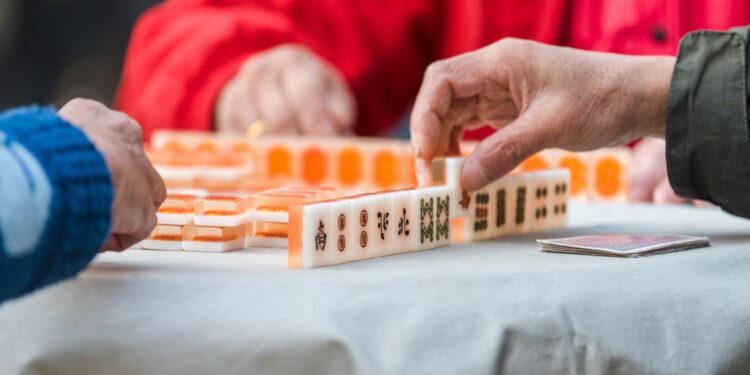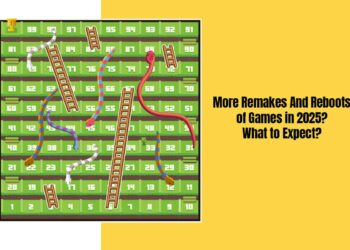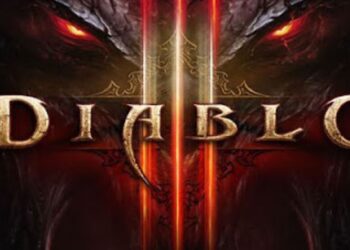Last Tuesday, I Hit a Wall
You know the type: your brain feels like it’s swimming through honey, and choosing lunch feels like quantum physics.
After three client meetings, two deadlines, and a computer crash, I was ready to quit.
My grandmother, of all people, texted me: “Try Mahjong. Believe me.”
I nearly laughed. Mahjong? How about the tile game I saw her play online?
But here’s the thing: Grandma Rose hasn’t missed a crossword puzzle in 15 years, remembers every grandchild’s favorite color (mine’s cerulean, by the way), and still beats me at Scrabble.
Perhaps she was on to something.
More Than Just Matching Tiles
Okay, I get it. At first glance, playing the best Mahjongg strategy games appears to be a simple game:
Match some beautiful tiles, clear the board, and the game is over.
However, after only five minutes of play, you’ll see why this game has survived for over two millennia.
It’s as if chess, puzzles, and memory games all came together for coffee.
My first game was very humbling.
Those tiles, with their intricate symbols and patterns, demanded more of my brain than any “brain training” app I’d tried.
Each move required:
- Strategy,
- Pattern recognition and
- A level of concentration I hadn’t seen since college finals.
And just when I thought I had it figured out, the game threw me a new layout, sending my neurons into a tailspin.
The Science Bit (Don’t Worry, It’s Actually Cool)
Here’s what happens in your brain when you play Mahjong and believe me, it’s pretty wild:
- Your visual cortex lights up like Times Square on New Year’s Eve, processing patterns and symbols faster than you can say “matching tiles.”
- Meanwhile, your prefrontal cortex, which is in charge of planning and decision-making, works hard to help you plan ahead.
It’s as if your brain is in the gym, but instead of lifting weights, it’s solving puzzles, juggling, and doing crosswords.
The true magic?
Your brain begins to develop new neural pathways.
It’s like taking a shortcut through a dense forest.
The more you play, the more obvious these routes become.
Scientists call it neuroplasticity, but I think of it as:
My brain is finally getting its act together.
Benefits Proven by Science
Recent studies have shown that regular Mahjong players experience improved:

- Memory retention (for example, remembering where they placed their keys).
- Pattern recognition (finding connections faster than a conspiracy theorist).
- Strategic thinking (chess players, beware).
- Focus and concentration (say goodbye to afternoon brain fog).
- Cognitive flexibility (adapting to new situations like a mental ninja).
Real Conversation with Real Players
“I started playing during my lunch breaks,” says Michael, a software developer from Seattle.
“Now, I can solve coding problems faster in the afternoon. It’s like the game clears my mind.”
He is not alone; his entire team now competes in “Mahjong Mondays” for bragging rights and, apparently, the last slice of pizza.
Sarah, a high school teacher, describes it differently:
“Ten minutes of Mahjong between grading papers keeps me sharp. Furthermore, I teach it to my students as a study break technique. Their focus afterward is incredible.”
Her students’ test scores have improved, but she admits this could be because they are spending less time on social media.
Then there’s Dr. Chen, a neurologist who suggests Mahjong to his elderly patients.
“It’s like CrossFit for your brain,” says the instructor.
“But without the risk of pulling a mental muscle.”
His oldest patient, a 92-year-old former librarian, claims that daily Mahjong sessions keep her sharp enough to run her book club and recall every plot twist in her favorite novels.
Why Does It Work When Other Games Don’t?
Consider your typical mobile game.
Fun? Yes.
Addictive? Often.
However, is it truly beneficial? Rarely.
They’re like mental candy: sweet but empty calories for your mind.
Mahjong is unique.
It brings together:
- Strategic thinking (similar to chess, but with more attractive pieces).
- Pattern recognition (similar to how the brain recognizes faces in clouds).
- Memory training (for example, remembering where you left your keys, phone, and wallet).
- Improving focus (similar to meditation, but with more tangible results).
- Problem-solving (similar to completing a puzzle while someone keeps changing the image).
Get Started (Without Losing Your Mind)
First time playing Mahjong?
Don’t worry.
Here’s a guide to mental fitness:
- Choose simple layouts.
- Seriously. Your ego can withstand it.
- Begin with “turtle” layouts; slow and steady wins the race.
- Look for obvious matches first.
- It’s like reading a book’s chapter titles before delving.
- The obvious pairings are like mental warm-ups.
- You have ten minutes to play.
- That’s it. Watch how you feel.
- It’s like going to the gym: start slow and gradually increase your effort.
- Recognize patterns.
- Once you start looking, you’ll notice them everywhere.
- Those dragons aren’t just appealing; they’re trying to tell you something.
- Create your strategy gradually.
- First week: Determine potential matches.
- Second week: Start planning for two moves ahead.
- Third week: Recognize patterns in tile arrangements.
- Fourth week: Start timing yourself (without pressure).
Beyond the Game
Here’s what surprised me:
After a week of playing, I started noticing patterns everywhere.
- Grocery shopping? I am suddenly better at organizing my cart.
- How do I manage my inbox? I’m catching important emails faster.
- How do I set up my schedule?
It’s as if my brain had updated its operating system.
My grandmother wasn’t just playing a game; she was passing down ancient wisdom disguised in modern technology.

What is the best part? It works.
It was as if she had given me a key to unlock areas of my brain that I had no idea were stuck.
Real-World Benefits
Let’s talk about how this ancient game is addressing modern issues:
- Improved work performance:
- Improved project planning, problem-solving, and multitasking abilities.
- Better decision-making abilities.
- Daily life:
- Living spaces are organized.
- Better time management, memory, and spatial awareness.
- Social benefits include:
- Cross-generational relationships.
- New online communities.
- Shared learning experiences.
- Competitive but friendly competitions.
The Bottom Line
You can pay hundreds of dollars for brain training subscriptions or try something that has kept minds sharp for centuries.
Something that scholars have battle-tested, that millions enjoy and that modern science supports.
Begin with 10 minutes. Let’s see what happens.
What about me?
My afternoon brain fog has lifted.
I am resolving problems faster.
I sort my desk by color (don’t judge).
Yes, I finally called Grandma Rose to thank her.
She just laughed and said, “Now, are you ready to learn gin rummy?”
But here’s the real kicker:
In an age when everyone is looking for the next big thing in mental fitness, the best solution is frequently centuries old.
Mahjong is more than just a game; it also serves as:
- A mental workout,
- Meditation, and
- A brain booster.
Remember that your brain, like a muscle, requires exercise to stay strong.
Mahjong is one of the most enjoyable workouts you will ever have.













































































































